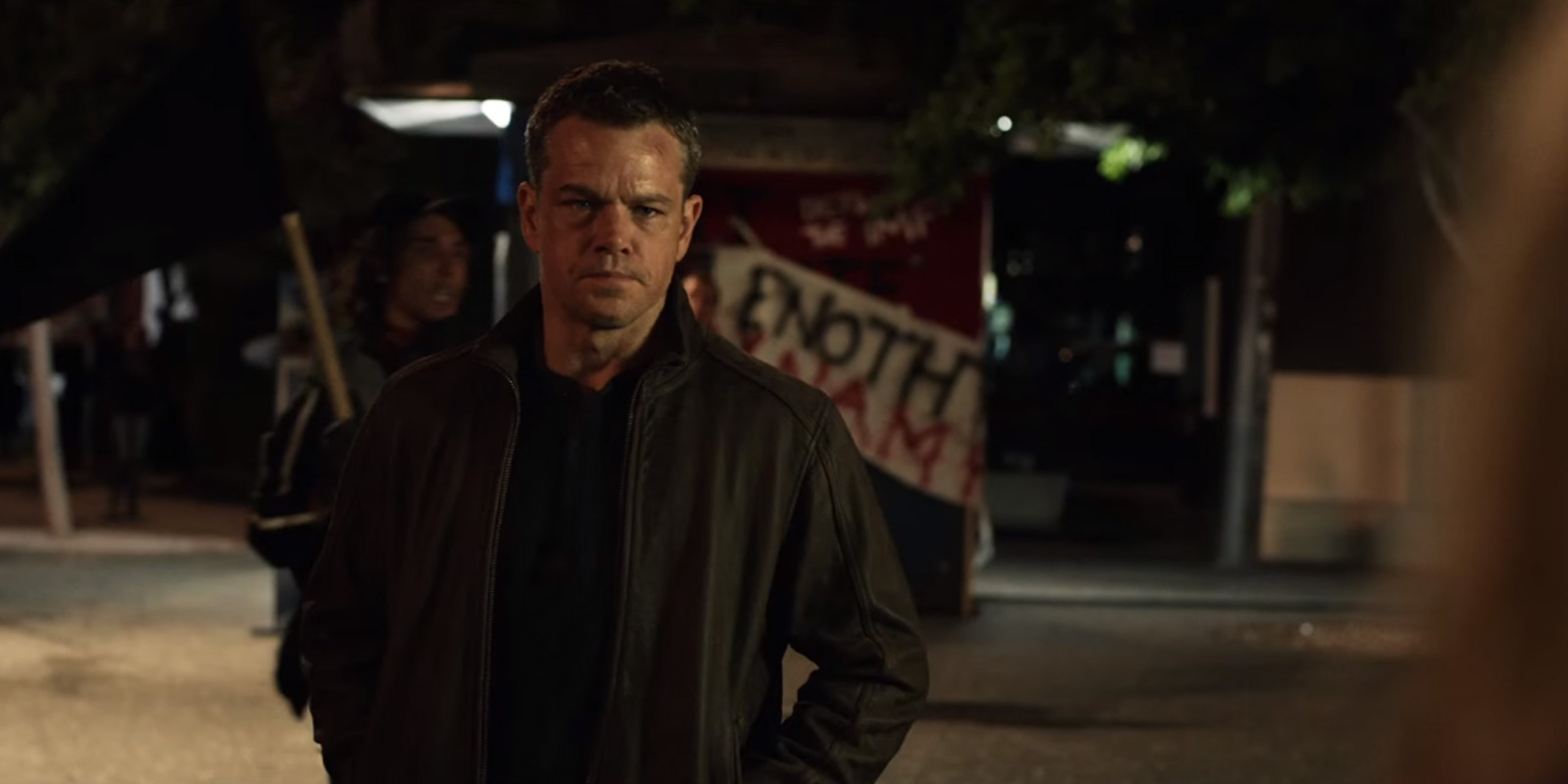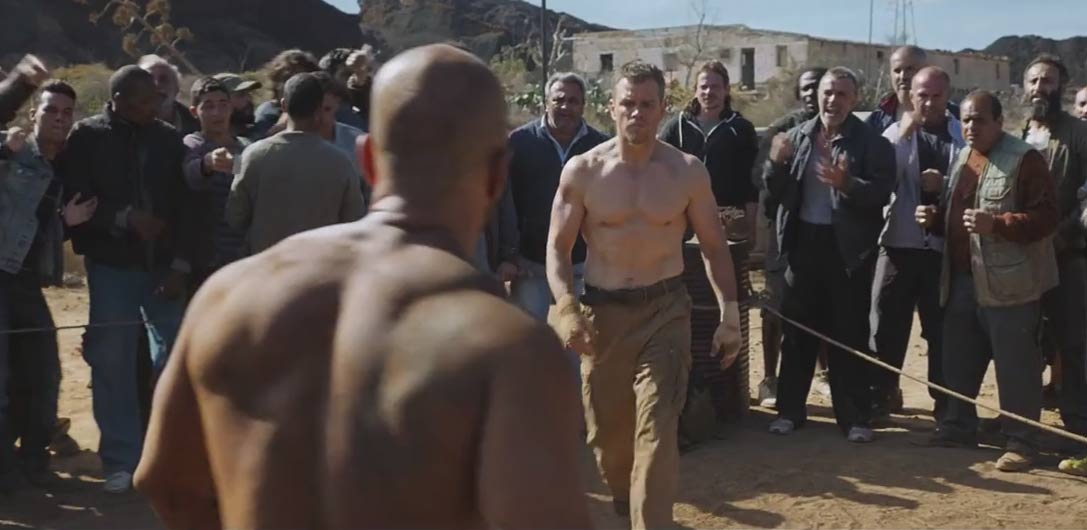“Jason Bourne” (the fifth film in the “Bourne” franchise and
the fourth with Matt Damon. I’m not going to be talking about the spin off film
with Jeremy Renner) is well acted, competently made, yet completely
forgettable. It’s the kind of film you walk out of saying: ”that wasn’t terrible,
I guess. But it wasn’t very good either. In fact, why did I drive all the way
to the theater and pay twelve dollars for that when I could have rented it a
few months later?”
And then you never think about it again.
The energy and thrill of the first three movies (“The Bourne
Identity,” “The Bourne Supremacy” and “The Bourne Ultimatum”) is replaced with
fatigue and repetition. “Jason Bourne” is essentially two hours of material
we’ve seen before. Even worse, while the film does bring some depth to the
series, it’s depth that director Paul Greengrass (and co screenwriter
Christopher Rouse) didn’t need to explore. It’s unnecessary.
The film begins with Bourne (Damon, looking tired and pouty)
in what I imagine is retirement for all highly intelligent fugitive spies:
living off the grid and hustling underground bare knuckle boxing matches in
Greece. I guess if you have sweet Martial art skills you may as well not let
them go to waste. His muscly torso doesn’t maintain itself after all. Bourne
thinks he’s found out everything he needs to know about his true identity and
how he came to be in the infamous Treadstone program.
Not so fast, Bourne.
Over in Iceland, former Treadstone technician Nicky Parsons
(Julia Stiles) hacks the CIA database and steals some super special files
containing new information about Bourne and his father. But the CIA doesn’t
like that. Long story short Bourne goes on the run again and the CIA wants him
dead or alive…whichever’s easiest.
“Jason Bourne” is an amalgamation of the second and third
films—following roughly the same “uncover-the-truth” narrative arc as
“Ultimatum” and one of the first major events that kicks the plot into gear is
taken almost directly from “Supremacy.” Within about five minutes the movie
switches to autopilot.
The new supporting characters are redundant and
one-dimensional. There’s another cold, methodical European assassin (this time
played by Vincent Cassel, who only has to look straight ahead in order to be
menacing), an older high-ranking CIA official as the primary antagonist (Tommy
Lee Jones plays the CIA director) and a conflicted young female analyst (played
by rising star Alicia Vikander). The cast is in top form, although that’s more
a testament to their skill and screen presence instead of the thin, repetitive
script they’re given. All Jones has to do is sit in a chair and speak in his
usual southern drawl to get our attention.
It’s not just the broad strokes that are redundant. Scene by
scene you feel like you’re watching the same “Bourne” film you’ve seen three
times before. We get flash drives and a new shady government program. CIA
operatives sit in control rooms monitoring events through GPS and CCTV’s and
rapidly type on computers. I lost track of how many times characters said
phrases like: “keep eyes on Bourne,” “Where’s Bourne?” “We lost Bourne!” “Follow him!”
There are a seemingly infinite amount of crowd scenes
wherein one of three standard “Bourne” franchise things occur. 1) Bourne leads
a group of government foot soldiers through the crowd and temporarily loses
them. 2) Bourne leads a group of foot soldiers through the crowd, disappears,
then reappears from behind a corner and beats them up. 3) Bourne leads someone else through a crowd away from
government foot soldiers. At the climax of the film during a cross cutting
sequence, Bourne spends what feels like ten minutes making his way through another crowd, being pursued by more foot soldiers. We also get tons of
walking up stairs, sometimes followed by Cassel’s assassin unfolding a sniper
rifle to use on a rooftop. (He does this action three times!).
There’s little innovation here and after a while you can
predict what’s going to happen in every scene.
The big action set pieces are dull and unmemorable. In
addition to an on foot pursuit set during a chaotic riot in Athens, (that uses
all the stuff I talked about in the previous paragraphs repeatedly) there’s an
endless car chase through the Las Vegas streets that’s equal parts sleep
inducing and desperate in how over the top it is. About a billion other cars
are totaled in the process and a police Humvee crashes through a Casino. The movie
is so dull that the filmmakers have to literally crash a police Humvee through
a Casino.
Though more disappointing than this redundancy is the film’s
major revelation--the final piece in the puzzle of Bourne’s identity. One of
the best aspects of the original trilogy and the Bourne character is that he
has a conscience. Beneath the automatic, superhuman exterior is a person, who
feels remorse for his actions in the Treadstone program and the people he
killed. At the end of “Ultimatum” it’s revealed that Bourne volunteered for the program because he
wanted to serve his country and keep people safe, which adds an additional
intriguing layer. Bourne chose this life and now he has to live with the
consequences of his decisions.
Without spoiling, the revelation in “Jason Bourne” significantly
changes the character and that final layer for the worst. It comes off strained
and desperate, as if Greengrass and Rouse were really struggling to find a way
to stretch out this tired narrative.
The revelation doesn’t ruin the franchise but it hammers
home how superfluous this latest installment is. The original trilogy ended
perfectly—it came full circle while at the same time leaving room for
uncertainty as to what Bourne’s future holds.
Now we know what Bourne’s future holds and it’s more of the
same.




https://www.youtube.com/watch?v=1FRCPnkAHqo
ReplyDelete